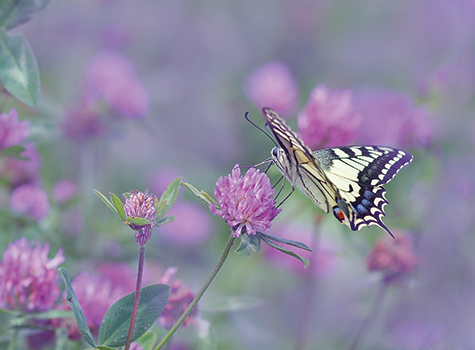The first few months of the year we celebrate festivals such as Pongal and Baisakhi to welcome the season of spring and a new harvest. This is the season of picnics and beach trips. But have we consciously made an effort to preserve these traditions? Not just on Earth Day, but throughout the year we need to learn how to take better care of this planet we call home so we can enjoy nature’s bounty and leave it pristine for future generations.
What does all this have to do with what we eat? More than you know! We can tackle personal health issues as well as global health and environmental issues such as energy conservation, pollution, and world hunger by changing our diets.
As the world’s population keeps growing, it is necessary to provide clean food and water for everyone. Research is showing that in order for us to live a healthy life and preserve this planet for future generations, it is imperative that we start thinking about what we are eating and how it is affects everything.
According to the Centers for Disease Control and Prevention, chronic diseases are the leading cause of death in the United States. According to a recent report released by the International Diabetes Federation, the worldwide number of cases of Type II diabetes is predicted to reach 592 million by 2035. A 2012 report by the American College of Cardiology states that more than 23.6 million people per year worldwide will die of cardiovascular disease by 2030. Eighty-six percent of healthcare expenditures are related to chronic disease and the economic burden of heart disease and stroke alone is over $300 billion a year.
These statistics are of particular consideration amongst the Indian population. We are genetically predisposed to having low good cholesterol and high triglycerides. We have a tendency to have fat deposits around the abdomen. All these factors increase our risk of diabetes and heart disease.
It has now been recognized that these chronic diseases are preventable to some extent, and even reversible with changes in lifestyle and dietary choices.
Plant foods – fruits, vegetables, beans and whole grains, have long been associated with improved biomarkers of health, and those following a vegetarian diet have lower rates of nearly every chronic disease. Studies show that a diet of whole plant foods, such as fruits, vegetables, whole grains, beans, lentils, nuts and seeds, decreases levels of oxidative stress and inflammation, which are associated with the development of chronic diseases.
Changing our diet could save millions of lives, billions of dollars, and immeasurably improve quality of life. Healthcare providers can be on the forefront of saving lives by promoting dietary changes, yet many are not familiar with the substantial science on disease prevention nor are they trained in behavior change methods. But how do we learn more? What should we eat? What is the best “diet”?
In this internet savvy, search everything online world, everyone thinks that they are the experts! Whether it’s at the office or at dinner parties, everyone is ready to give diet advice. But are you getting the right advice? Is that advice evidence-based? Does it have any merit?
Now you can find out for yourself! We are very fortunate to have a regional event that can give us that information and start our journey towards being more conscious and conscientious. Recognized experts in medicine, nutrition and behavior change will gather to share evidence on best practices to prevent disease, this May 19-22 in Raleigh, NC at the 3rd annual Plant-based Prevention of Disease conference (P-POD).
The theme is “Nutrition against Chronic Disease: from Evidence, to Health-Practitioner Teamwork, to Guided Behavior Change.” Conference objectives offer an evidence-based look at how the risks of society’s major preventable diseases may be affected, and reduced, by certain plant-based approaches to eating. Not only that, but it goes a step further to help put this evidence into practice.
P-POD educational activities are appropriate for both the general public and health professionals. Up to 25 hours of continuing education are available for a variety of professionals, physicians, dietitians, researchers, nurses, and others. Registration is affordable and student discounts are available.
An important aspect of the conference is that it’s free of any commercial funding, and yet manages to keep registration costs low. All co-sponsors and collaborators are like-minded non-profit organizations.
The best feature of the P-POD conference is its intimate setting. Where else can you hear presentations by nationally-recognized distinguished speakers and then sit at the same table and have lunch with them? The low-key event makes it possible for the attendees and presenters to chat with each other and thus collaborate and exchange ideas. The whole event is professional and yet has an informal feel.
This year, there is a second theme. The 68th United Nations General Assembly has declared 2016 as the International Year of Pulses (IYP). The purpose of the IYP campaign is to heighten public awareness of the nutritional, economic, and environmental benefits of pulses and legumes. Pulses not only sustain and nourish people with their high nutritional content, but they also sustain the land by regenerating the soil, and save water by requiring little water input. Thus beans and legumes sustain the life and energy of the farmer, the land, and the water.
The Plant-based Prevention of Disease (P-POD) conference focuses on dietary changes to prevent chronic disease. One of the major changes deemed necessary in our diet is the amount and source of protein. Research shows that we need to reduce the amount of animal protein we consume and focus instead on eating more beans and pulses as a source of plant-based protein.
To celebrate the International Year of Pulses, and to encourage people to eat more beans and legumes, a food drive is also planned at P-POD. All attendees are requested to bring 1-2 pound bags of dry beans or any variety of plain canned beans. All the food collected will be donated to the Food Bank of Central and Eastern North Carolina.
Conference details, visit preventionofdisease.org.
— Parul Kharod, MS, RD, LDN is a registered dietitian and licensed nutritionist and works as a Clinical Dietitian with Outpatient Nutrition Services at WakeMed Hospital in Cary and Raleigh. She can be reached at [email protected]
Posted: Tuesday, April 26, 2016



